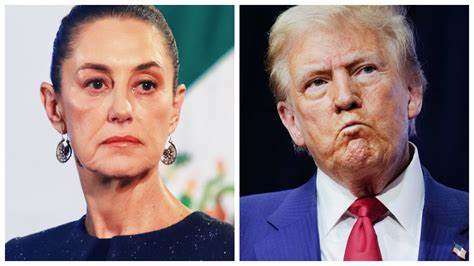Mexico is ramping up its internal security measures to tackle organized crime amid increasing pressure from the United States, notably from the MAGA movement associated with former President Donald Trump.
Recently, the U.S. government classified several Mexican criminal groups, including the Cartel del Noreste and the Jalisco New Generation Cartel (CJNG), as foreign terrorist organizations. This designation is intended to enforce harsher legal actions against these entities and reflects the Trump administration’s strong stance on border security and drug trafficking.
In response, President Claudia Sheinbaum has initiated a targeted, intelligence-driven campaign against these cartels. This initiative involves arresting key cartel figures and coordinating with U.S. authorities to impose financial penalties.
The Cartel del Noreste, known as the successor to the infamous Los Zetas, has been a primary focus. Two prominent members, Miguel Angel de Anda Ledezma and Ricardo Gonzalez Sauceda, were sanctioned by the U.S. Treasury for their involvement in arms smuggling, drug trafficking, and violent offenses against Mexican security forces.
These measures form part of a wider effort to dismantle violent criminal organizations along the U.S.-Mexico border. The U.S. has also filed terrorism-related charges against Mexican nationals for supporting cartel operations, indicating a shift in how organized crime is prosecuted.
However, the Mexican government has voiced concerns over labeling these groups as terrorist organizations, warning that such designations might lead to unilateral U.S. military interventions on Mexican soil, which could compromise the country’s sovereignty.
Despite these disagreements, cooperation between Mexico and the U.S. continues. Since President Sheinbaum assumed office, Mexican authorities have apprehended 185 American citizens connected to organized crime, illustrating the cross-border nature of these criminal networks.
This ongoing situation highlights the complex challenge of addressing organized crime within Mexico while managing international diplomatic pressures. The success of collaborative efforts between the two countries will be critical moving forward.



